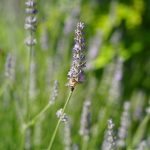Possums are nocturnal marsupials native to North and South America. These adaptable creatures are omnivorous, consuming a diverse diet that includes fruits, vegetables, insects, small animals, and occasionally chickens. Their keen sense of smell often leads them to chicken coops, attracted by the scent of feed and the potential for an easy meal.
When possums gain access to a coop, they can cause significant harm to chickens, sometimes resulting in fatalities. Possum intrusions present a serious concern for poultry keepers due to the potential for flock losses and property damage. Moreover, possums can be vectors for various diseases, including leptospirosis and tuberculosis, which may be transmitted to chickens through direct contact or contaminated food and water.
These marsupials may also introduce external parasites like fleas and ticks to the coop environment, further compromising chicken health. Given these risks, it is essential for chicken owners to be aware of the threats posed by possums and implement appropriate preventive measures to safeguard their flocks. Effective strategies may include securing coops against entry, removing potential attractants, and employing deterrent methods to discourage possum activity near poultry areas.
Table of Contents
- 1 Creating a secure coop: Protecting your chickens from possums
- 2 Natural deterrents: Using plants and odors to keep possums away
- 3 Securing the perimeter: Fencing and barriers to prevent possum access
- 4 Eliminating attractants: Keeping food and water sources secure
- 5 Scare tactics: Using noise and light to deter possums
- 6 Seeking professional help: When to call in a wildlife control expert
- 7 FAQs
- 7.1 What are possums and why are they a threat to chickens?
- 7.2 How can I keep possums away from my chickens?
- 7.3 Are there any natural deterrents that can help keep possums away from chickens?
- 7.4 What are some signs that possums are targeting my chickens?
- 7.5 Are there any legal methods for dealing with possums that are threatening my chickens?
Key Takeaways
- Possums pose a threat to chickens by preying on them and stealing their eggs.
- Creating a secure coop with strong, predator-proof materials is essential to protect chickens from possums.
- Natural deterrents such as planting strong-smelling plants and using odors like ammonia can help keep possums away from the coop.
- Securing the perimeter with fencing and barriers can prevent possums from accessing the chicken coop.
- Keeping food and water sources secure and inaccessible to possums can help eliminate attractants for them.
- Using scare tactics such as noise and light can deter possums from approaching the chicken coop.
- If possums continue to be a problem, it may be necessary to seek professional help from a wildlife control expert.
Creating a secure coop: Protecting your chickens from possums
Building a Secure Coop
To protect chickens from possums, it is essential to create a secure coop that is specifically designed to prevent possum access. This can be achieved by ensuring that the coop is constructed with sturdy materials and is free from any gaps or openings that possums could exploit to gain entry.
Reinforcing the Coop
Additionally, it is important to reinforce the coop with hardware cloth or wire mesh to prevent possums from chewing or digging their way inside.
Securing Doors and Windows
Furthermore, it is advisable to install secure locks on all doors and windows of the coop to prevent possums from prying them open. It is also important to regularly inspect the coop for any signs of wear and tear, and promptly repair any damage to ensure that it remains secure at all times.
Effective Protection
By creating a well-protected coop, chicken owners can effectively safeguard their flock from possums and other potential predators.
Natural deterrents: Using plants and odors to keep possums away

In addition to creating a secure coop, chicken owners can also use natural deterrents to keep possums away from their property. Certain plants and odors are known to repel possums and can be strategically used around the coop to discourage their presence. For example, planting strong-smelling herbs such as mint, lavender, or rosemary around the perimeter of the coop can help deter possums, as they are known to dislike these scents.
Similarly, spreading natural repellents such as garlic or chili powder around the coop can also help keep possums at bay. These strong odors can mask the scent of the chickens and their feed, making the area less attractive to possums. Additionally, using predator urine or feces as a natural deterrent can create the illusion of a threat and discourage possums from approaching the coop.
By incorporating natural deterrents into their chicken-keeping practices, owners can effectively minimize the risk of possum infestations and protect their flock from potential harm.
Securing the perimeter: Fencing and barriers to prevent possum access
Another effective way to prevent possum access to a chicken coop is by securing the perimeter with fencing and barriers. Installing a sturdy fence around the coop can act as a physical barrier that prevents possums from entering the area. It is important to use materials such as wire mesh or hardware cloth with small openings to ensure that possums cannot squeeze through or climb over the fence.
In addition to fencing, it is also advisable to install barriers such as predator aprons or dig-proof skirting around the base of the coop to prevent possums from digging underneath and gaining access from below. These barriers should extend outward at least 12 inches and be securely anchored into the ground to effectively deter digging animals like possums. By securing the perimeter of the coop with fencing and barriers, chicken owners can significantly reduce the risk of possum intrusion and protect their flock from potential harm.
Eliminating attractants: Keeping food and water sources secure
Possums are attracted to chicken coops primarily because of the availability of food and water sources. To minimize the risk of possum infestations, it is crucial for chicken owners to keep these attractants secure at all times. This can be achieved by using tightly sealed containers to store chicken feed and ensuring that no spillage or leftovers are left outside the coop overnight.
Similarly, it is important to provide chickens with water in spill-proof containers that cannot be easily accessed by possums. By eliminating access to food and water sources, chicken owners can make their property less appealing to possums and reduce the likelihood of them invading the coop in search of a meal. Additionally, regularly cleaning up any spilled feed or debris around the coop can help minimize odors that may attract possums, further deterring their presence.
Scare tactics: Using noise and light to deter possums

Disrupting Possums’ Comfort Zone
Possums are nocturnal animals that prefer dark and quiet environments. Therefore, using noise and light can disrupt their comfort zone and discourage them from lingering around the chicken coop. For example, installing motion-activated lights around the perimeter of the coop can startle possums and make them feel exposed, prompting them to retreat.
Unpleasant Environments for Possums
Similarly, using noise-making devices such as ultrasonic repellents or wind chimes can create an unpleasant environment for possums and discourage them from staying in the vicinity of the coop. These scare tactics can be particularly effective when used in combination with other preventive measures, such as securing the perimeter and eliminating attractants.
Creating a Possum-Repellent Environment
By incorporating noise and light deterrents into their chicken-keeping practices, owners can create an environment that is less inviting to possums and reduce the risk of potential infestations.
Seeking professional help: When to call in a wildlife control expert
In some cases, despite taking all necessary precautions, possum infestations may still occur on a property. When faced with persistent possum problems, it may be necessary to seek professional help from a wildlife control expert. These professionals have the knowledge and experience to effectively address possum infestations and implement targeted solutions to resolve the issue.
Wildlife control experts can conduct thorough inspections of the property to identify potential entry points and assess the extent of the infestation. Based on their findings, they can then recommend appropriate measures such as trapping and relocating possums, sealing off entry points, or implementing habitat modifications to deter their presence. Additionally, wildlife control experts can provide valuable advice on long-term strategies for preventing future possum infestations and protecting chicken coops from potential threats.
In conclusion, possums pose a significant threat to chickens and their coops due to their opportunistic feeding habits and potential for transmitting diseases. To protect chickens from possums, it is essential for owners to understand the threat they pose and take proactive measures to create a secure coop environment. This includes using natural deterrents, securing the perimeter with fencing and barriers, eliminating attractants, employing scare tactics, and seeking professional help when necessary.
By implementing these preventive measures, chicken owners can effectively safeguard their flock from possum infestations and ensure their safety and well-being.
If you’re looking for ways to keep possums away from your chickens, you may also be interested in learning about the best interior ideas for your chicken coop. Check out this article on chicken coop interior ideas to ensure your coop is a safe and comfortable space for your feathered friends.
FAQs
What are possums and why are they a threat to chickens?
Possums are nocturnal marsupials that are known to prey on chickens and their eggs. They can pose a threat to the safety and well-being of chickens by attacking and killing them.
How can I keep possums away from my chickens?
There are several methods to keep possums away from chickens, including securing the chicken coop with strong wire mesh, installing motion-activated lights or sprinklers, and using natural deterrents such as predator urine or ammonia-soaked rags.
Are there any natural deterrents that can help keep possums away from chickens?
Yes, natural deterrents such as predator urine (e.g. fox or coyote urine) or ammonia-soaked rags can help keep possums away from chickens. These scents can mimic the presence of a predator and deter possums from approaching the coop.
What are some signs that possums are targeting my chickens?
Signs that possums may be targeting your chickens include missing or injured chickens, disturbed nesting areas, and evidence of possum tracks or droppings near the coop.
Are there any legal methods for dealing with possums that are threatening my chickens?
In some areas, it may be legal to trap and relocate possums that are posing a threat to chickens. However, it is important to check local regulations and obtain any necessary permits before attempting to trap or relocate possums. In some cases, it may be necessary to contact a professional wildlife removal service for assistance.
Meet Walter, the feathered-friend fanatic of Florida! Nestled in the sunshine state, Walter struts through life with his feathered companions, clucking his way to happiness. With a coop that’s fancier than a five-star hotel, he’s the Don Juan of the chicken world. When he’s not teaching his hens to do the cha-cha, you’ll find him in a heated debate with his prized rooster, Sir Clucks-a-Lot. Walter’s poultry passion is no yolk; he’s the sunny-side-up guy you never knew you needed in your flock of friends!







